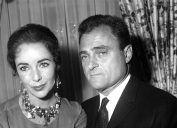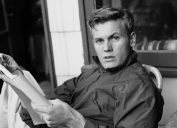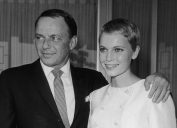Rock Hudson's Agent Married Him Off to His Secretary to Keep His Sexuality a Secret
The actor was out in his personal life but not to the public.
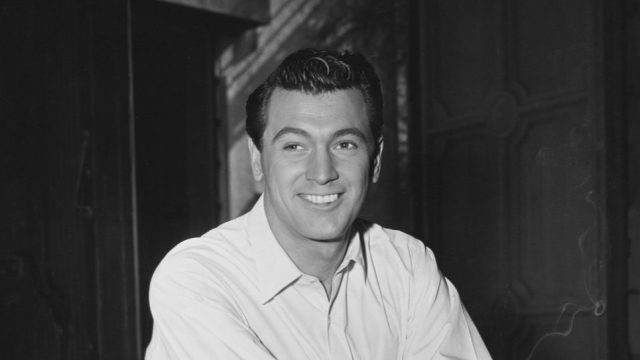
Rock Hudson was the classic definition of a leading man in the '50s. However, his heterosexual public image deviated from his true self—it was largely a creation of Henry Willson, one of the preeminent agents of the era. Willson was credited for inventing the Golden Age of Hollywood's ideals of manhood and building up a stable of beefcake heartthrobs, including Hudson and Tab Hunter.
Like some of his clients, Willson was also gay and had to be discreet about his sexuality. Ryan Murphy's 2020 Netflix series Hollywood focused on a fictionalized version of the agent (played by Jim Parsons) and his client base of closeted stars, depicting him as someone who had been taught to hate who he was and taking that out on those he represented by forcing them to conform to heteronormativity. It's debatable how accurate the series is on this subject, but it's also been claimed that Willson was so determined to keep Hudson's sexuality a secret that he arranged for the actor to marry his secretary. Read on to learn more about the marriage of convenience and Hudson's trailblazing legacy.
READ THIS NEXT: Tab Hunter Revealed How Secret Affair With Anthony Perkins Ended: "I Felt Betrayed."
Roy Harold Scherer Jr. was discovered by Willson in 1947.
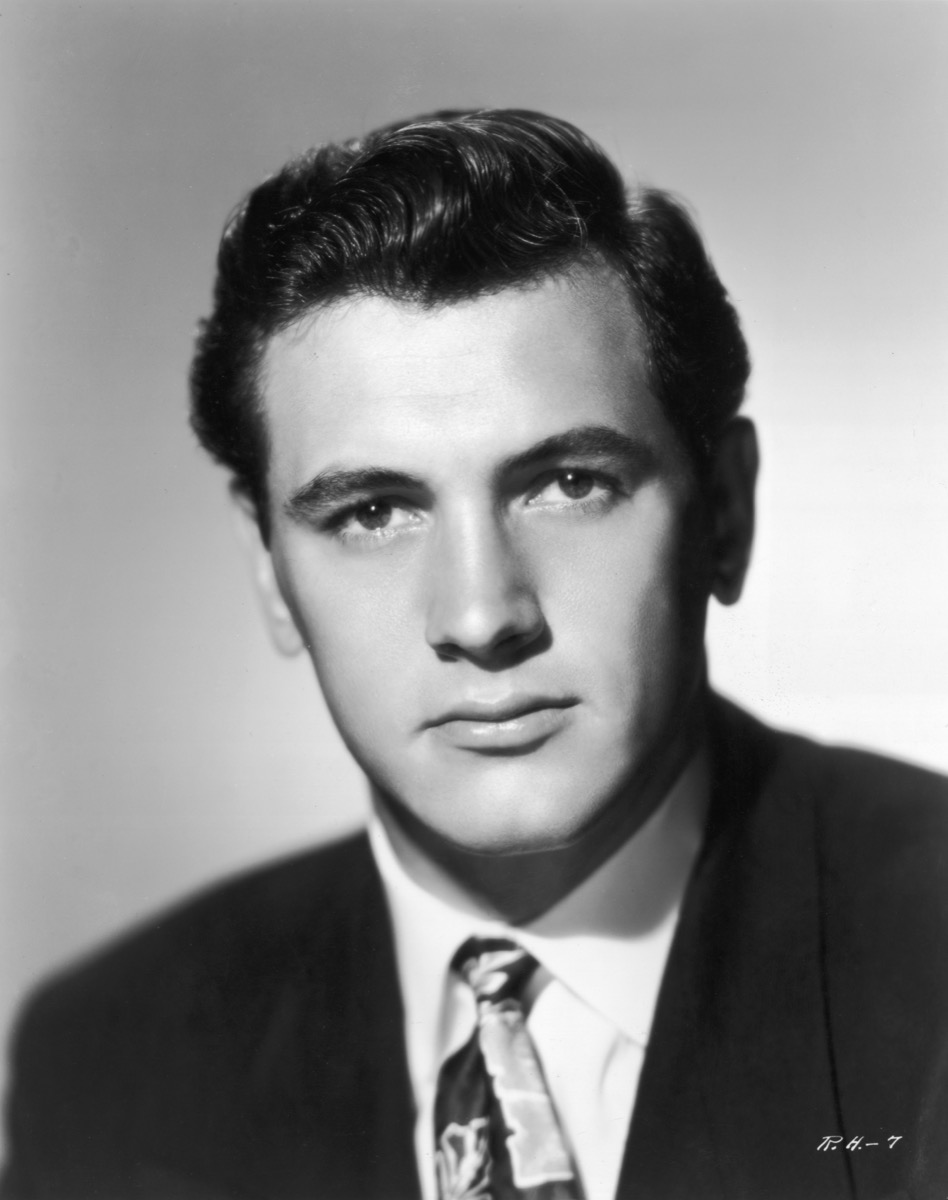
Born Roy Harold Scherer Jr., Hudson served in the Navy during World War II and then made his way to Hollywood to try to make his dreams of being a movie star come true. He took on other jobs while he attempted to make it and was driving a truck when he sent a photo of himself to Willson, who agreed to be his agent.
The agent dubbed his new client "Rock Hudson," a name that the actor apparently hated. Willson was inspired by the Rock of Gibraltar and the Hudson River, two strong, natural landmarks. By 1949, Hudson was signed to Universal and on his way. According to his biographer Mark Griffin, the author of 2018's All That Heaven Allows, there was likely a price that the aspiring actor had to pay for Willson's championing of him. Griffin told NPR in 2018, "It was fairly well-known that if you were a Henry Willson client, as Tony Curtis once expressed it, you probably had to sexually express yourself to Henry," adding that the agent's business operated as a "gay casting couch, if you will."
Hudson was out in his private life.
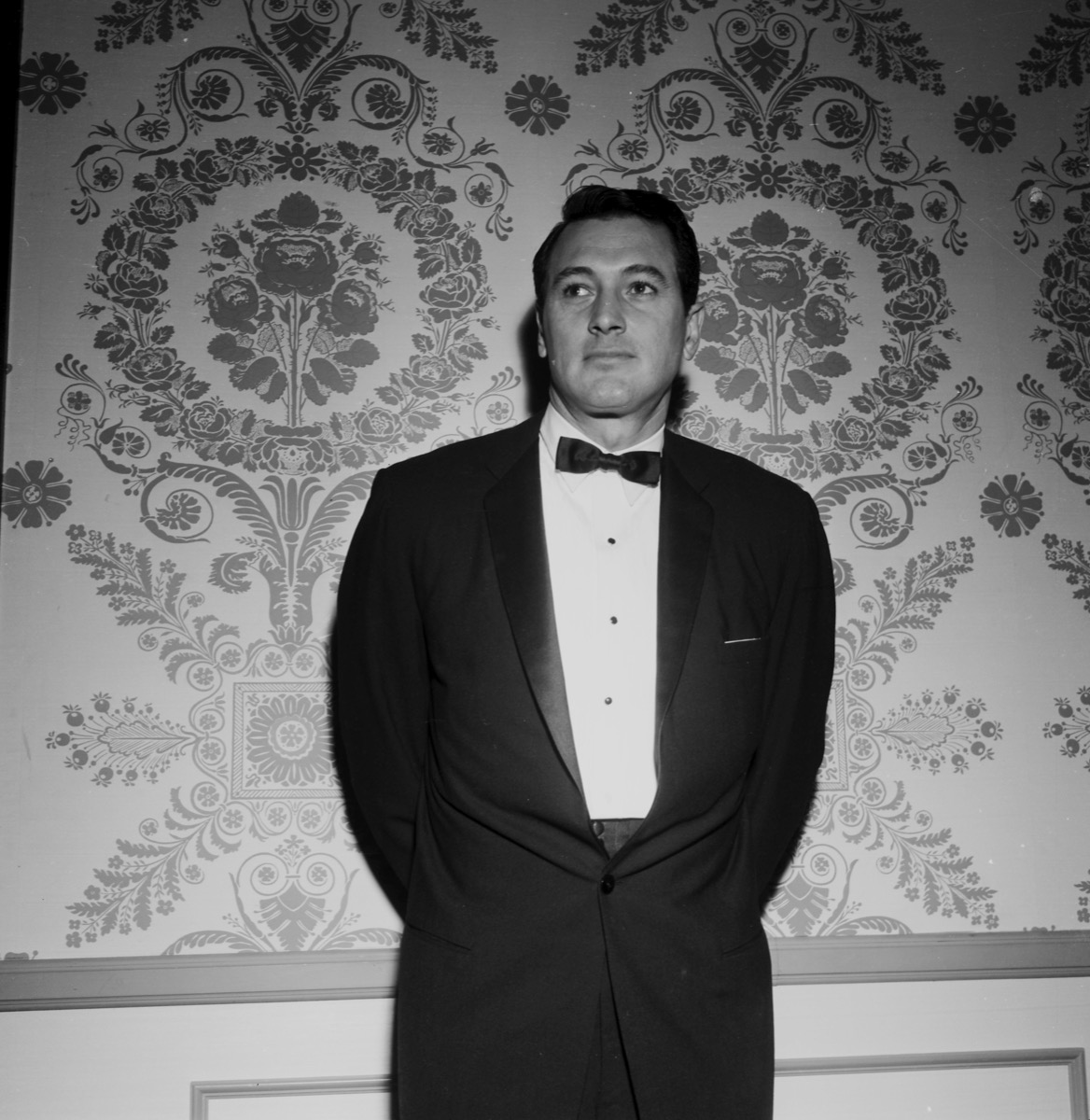
Hudson reportedly had trouble memorizing lines, but he kept at it and began landing leading roles in the early '50s. Film magazines also loved him, turning the up-and-coming star into a cover model. By the end of the decade, Hudson was established as a romantic lead after appearing in 1954's Magnificent Obsession, 1956's Giant, and 1959's Pillow Talk, in which he starred with Doris Day. The onscreen pairing were a hit, and they'd collaborate several more times.
Despite his public image, Hudson was out as gay within his Hollywood circles. In his 2015 book Rock Hudson: The Gentle Giant, biographer David Bret quotes Mamie Van Doren, who was a contract player at Universal the same time as Hudson, on the subject. "We all knew Rock was gay, but it never made any difference to us," she said. "Universal invested a lot of money in Rock, and it was important for his image to remain that of a lady-killer. Rock did what was expected of him."
Willson traded information on another client.
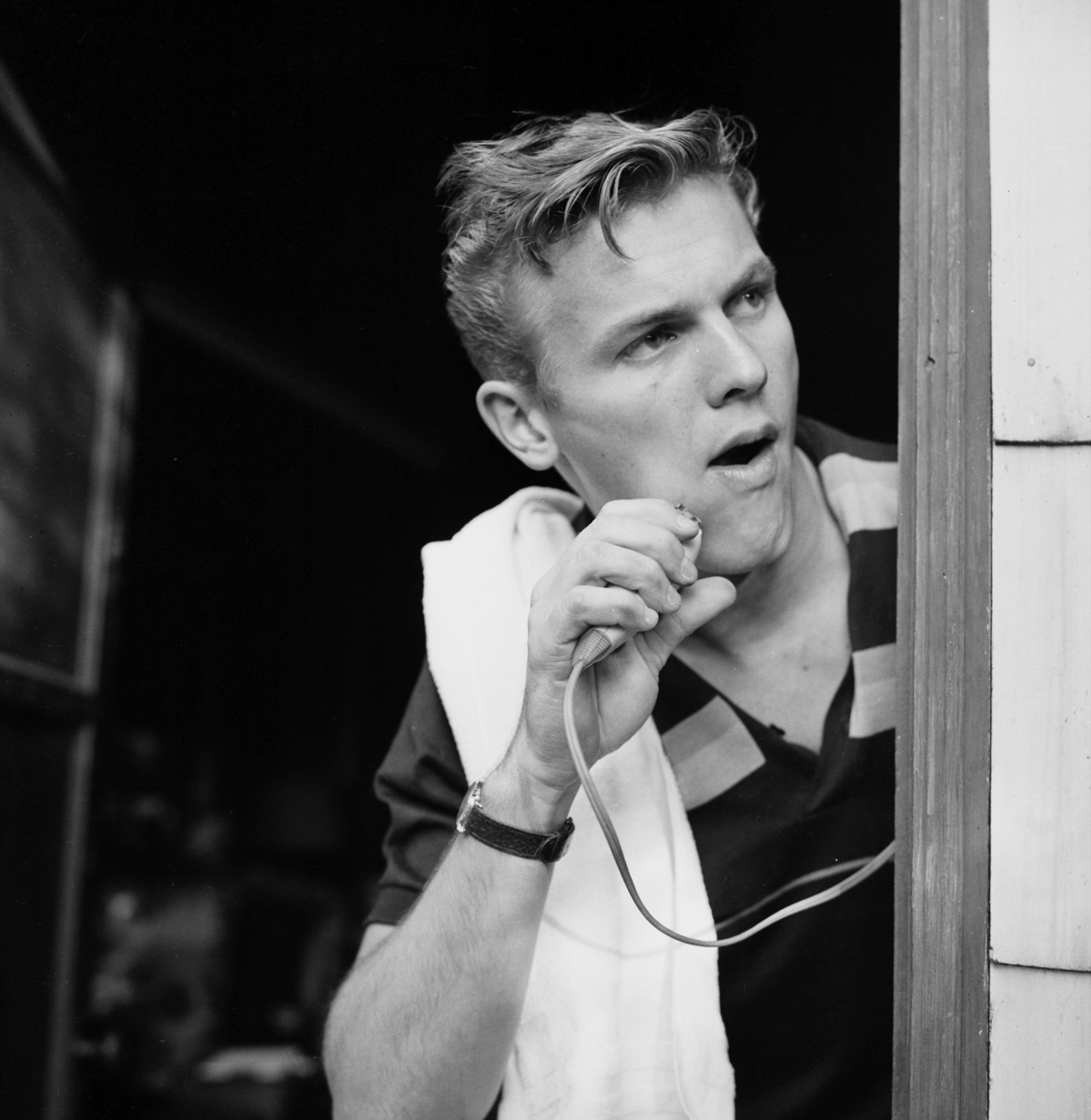
Hudson played along, including posing for the 1955 LIFE cover story "Hollywood's Most Handsome Bachelor," which framed his single lifestyle in Hollywood as that of a man who just hadn't had time to find the right girl.
However, that same year, the gossip magazine Confidential threatened to out him. Willson orchestrated a deal to protect Hudson, slipping the magazine information about another of his closeted clients, Hunter (pictured above), instead.
For more Old Hollywood gossip sent right to your inbox, sign up for our daily newsletter.
Willson arranged for Hudson to marry.
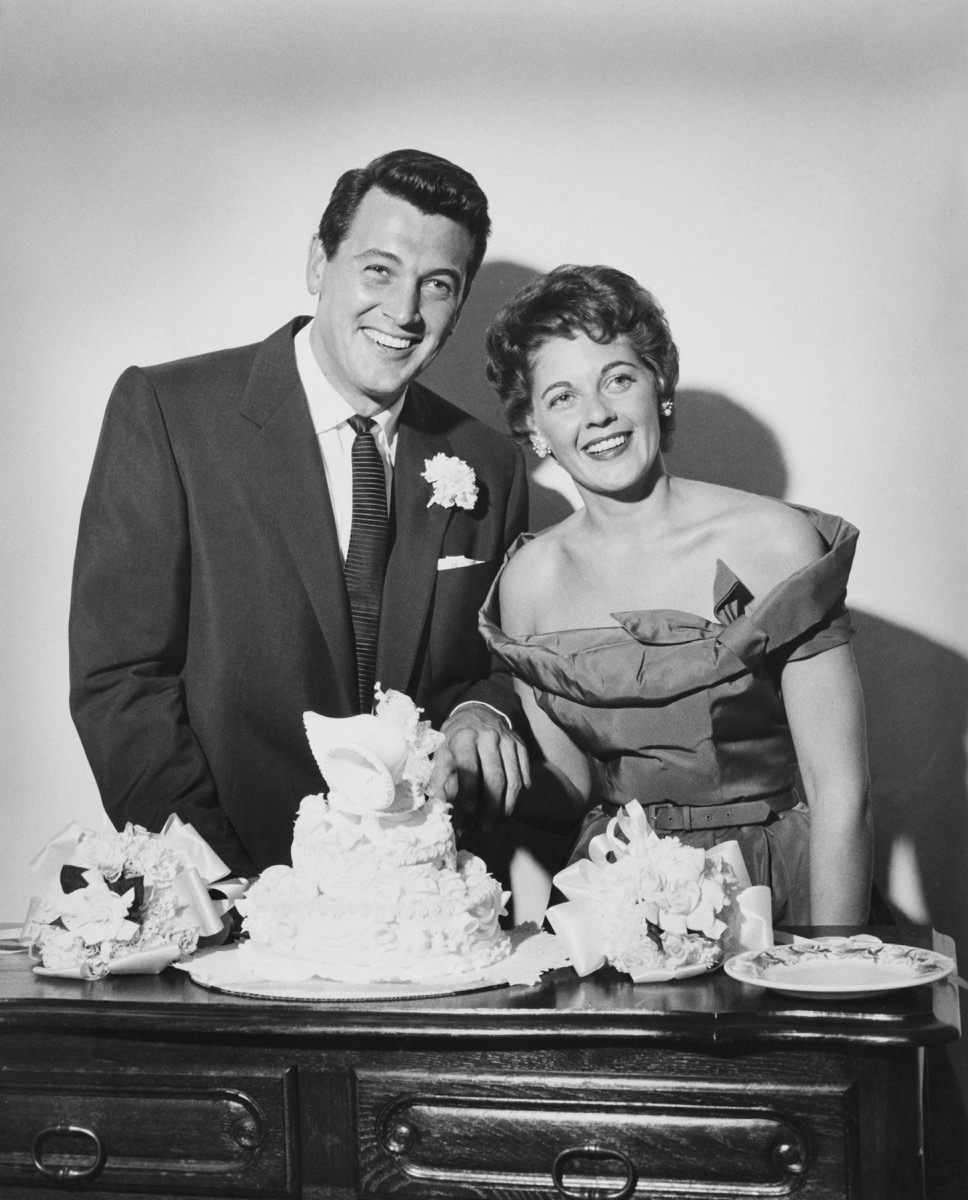
As Hudson was one of Universal's major stars, Willson decided that the best way to keep Hudson's sexuality a secret was to marry him to a woman. And the agent's secretary, Phyllis Gates, happened to be single.
Gates and Hudson tied the knot on November 9, 1955, when they were both 30 years old. According to her 1989 memoir, My Husband, Rock Hudson, they dated and even lived together prior to this. However, even some of the actor's best friends reportedly didn't know her prior to their nuptials. A 1985 People article reports that Hudson's childhood friend and best man James Matteoni claimed that he met Gates for the first time on the day of the wedding.
"Roy called up at two in the morning and said, 'I've made arrangements for you to be on a 6 o'clock flight. Keep it a secret,'" he said. "We went to a courthouse two or three minutes before it closed—so that the reporters had already left. Then we went to a hotel where a cottage suite had been taken. After the ceremony, we each had to call one of the columnists to let them all know at the same time."
Whatever the professional design of the marriage, Gates maintained that she married Hudson for love. "I thought he would be a wonderful husband. He was charming, his career was red hot, he was gorgeous," she told one of his biographers, Sara Davidson (via The Los Angeles Times). "How many women would have said no?"
The marriage was over after a few years.
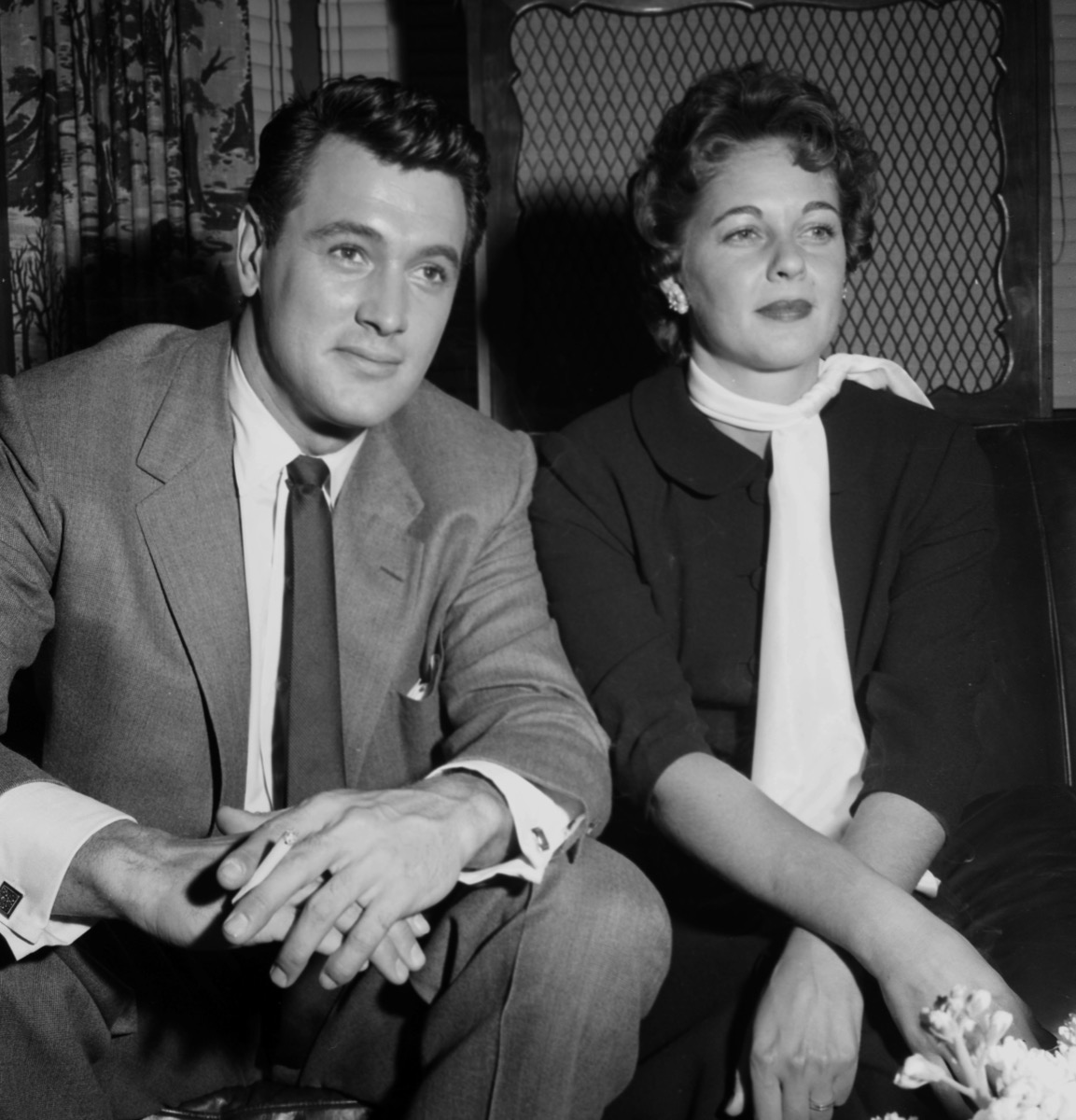
According to Mark Bego's 1986 biography, Rock Hudson: Public and Private, Hudson's co-stars knew the marriage was strategic. This included Arlene Dahl, who had co-starred with Hudson in 1954's Bengal Brigade. "She was not the love of his life," Dahl said, per Bego. "It was an arrangement." Gates, on the other hand, was apparently still in the dark until 1958, when she accused her husband of "picking up boys off the street" in conversations she secretly taped, according to The Hollywood Reporter.
"I have never picked up any boys on the street," Hudson responded. But he did admit to sleeping with them. The marriage dissolved shortly thereafter; the two were divorced by August of that year. In 1985, Hudson's friend Ken Maley told People, "Rock said the studio set up the marriage and promoted the wedding and the honeymoon. He was very bitter about that."
Hudson continued to keep his sexual orientation private, however.
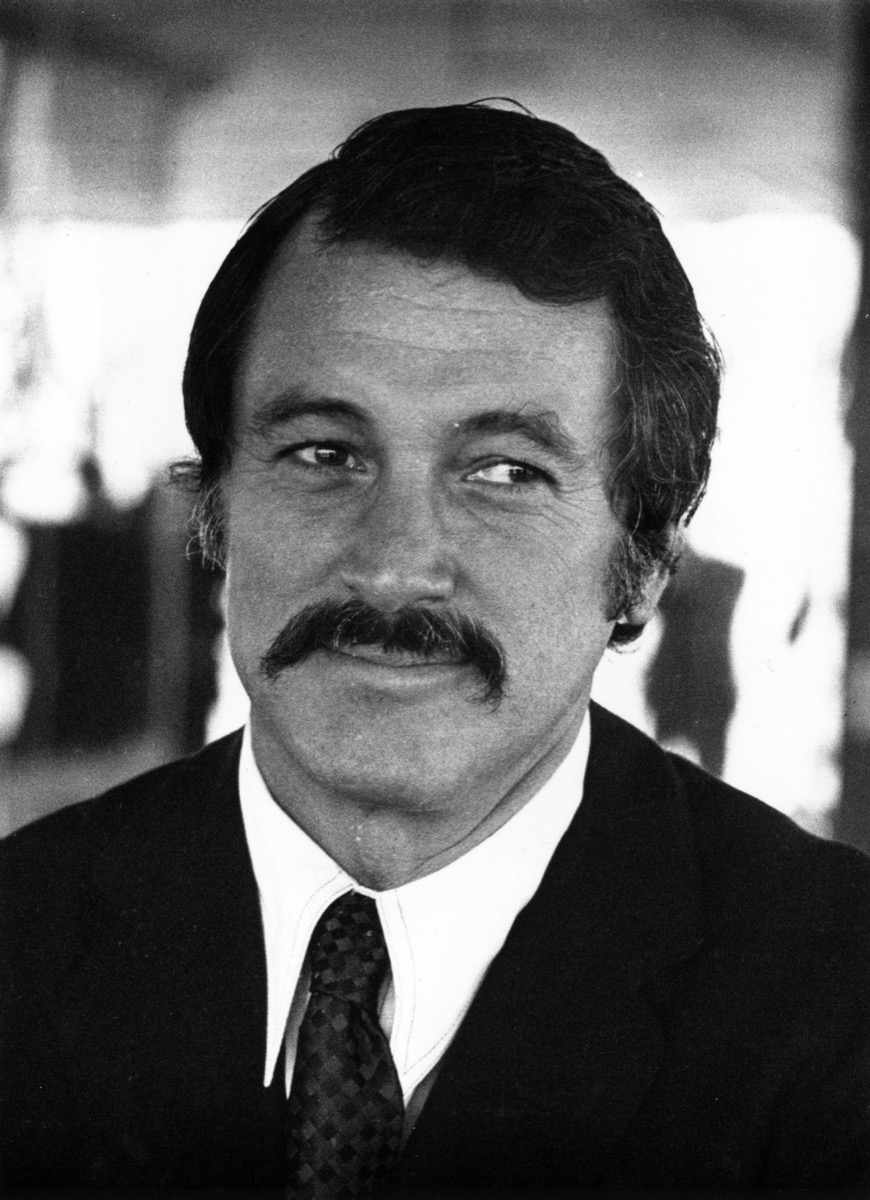
As the '60s brought an end to chaste romantic fluff like Pillow Talk, Hudson's willingness to be a team player helped him make the transition to the newly dominant television landscape. He starred in the hit police procedural series McMillan & Wife, which ran from 1971 to 1977. Hudson's sexuality remained an open secret among his colleagues, but he was wary about finding acceptance in his fans.
He had good reason to be worried. In 1971, someone anonymously sent invitations to the "wedding" of Hudson and Jim Nabors, a joke that eventually became mainstream enough to be referenced in Mad Magazine. Hudson's friend, author Armistead Maupin, said Hudson would tell the story as a way of explaining his refusal to come out to the public. "Rock and Nabors were just good friends, but the rumor made it impossible for them to be seen together!," he explained, according to the National Enquirer.
He was diagnosed with AIDS in 1984.
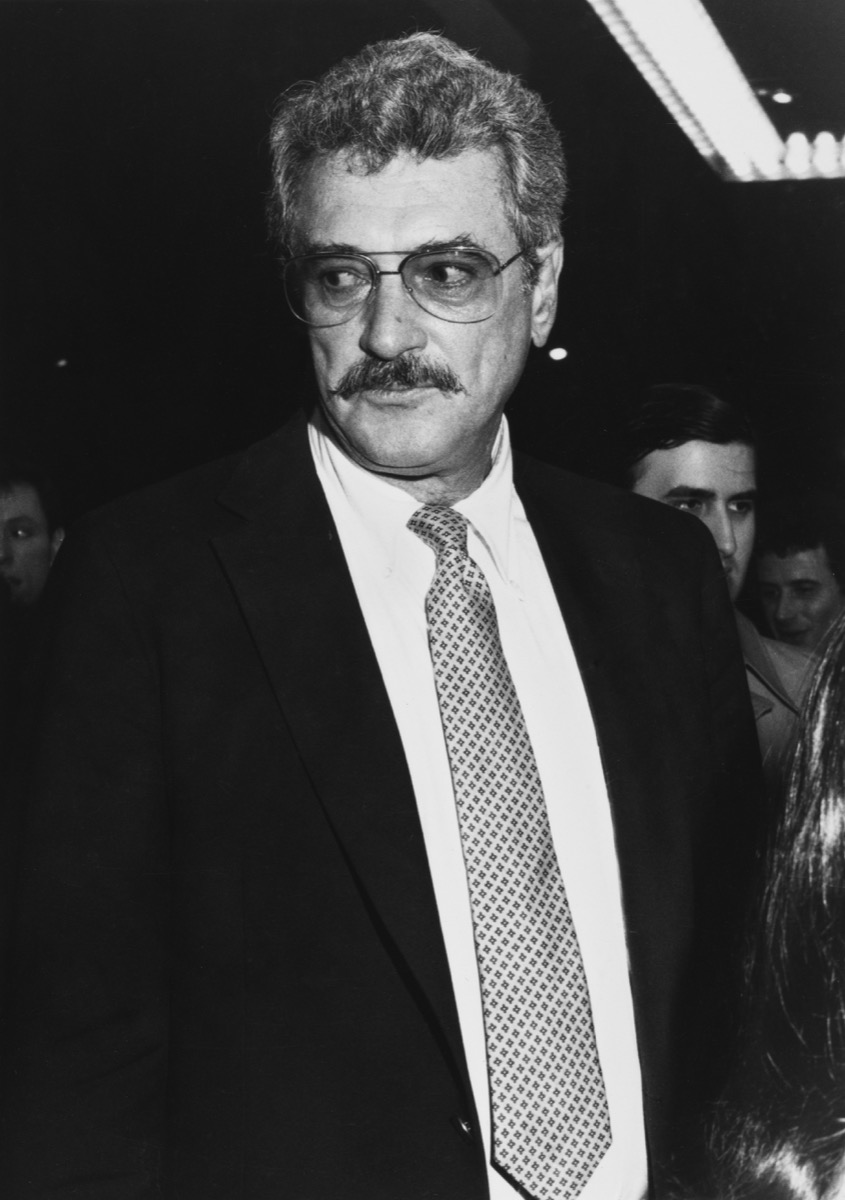
Hudson became sick in the spring of 1984 and was diagnosed with AIDS on June 5 of that year. He spent the next few months flying around Europe consulting with doctors, but his health only worsened. After a public appearance with his friend and frequent co-star Day to promote her new project in July 1985, where it was obvious how ill Hudson was, he decided to go public with his condition.
Hudson was the first major celebrity to disclose that he had AIDS, and his announcement brought unprecedented public awareness to the epidemic. The late comedian Joan Rivers told People that the actor's candidness had an incredible impact. "Two years ago, when I hosted a benefit for AIDS, I couldn't get one major star to turn out," she explained. "I received death threats and hate mail. Rock's admission is a horrendous way to bring AIDS to the attention of the American public, but by doing so, Rock, in his life, has helped millions in the process. What Rock has done takes true courage."
Hudson died in October 1985 at the age of 59. The AIDS crisis raged on; according to the World Health Organization, approximately 40.1 million people have died globally from HIV-related illnesses.
